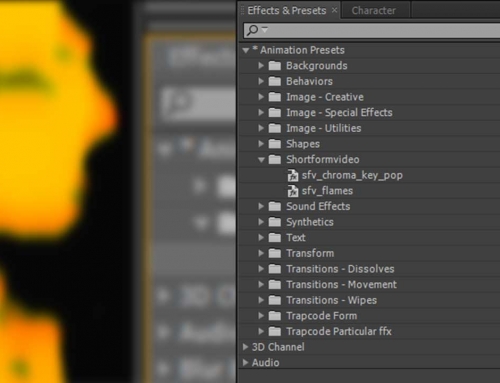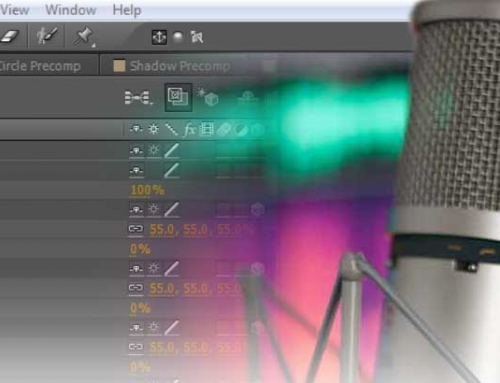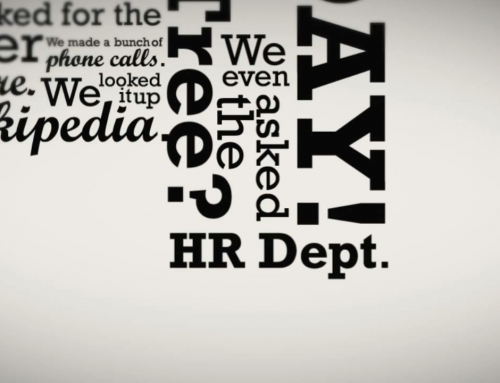I received an email today asking if I had any advice to someone looking to get into video production and motion graphics, and after writing what ended up as a lengthier response than I’d originally intended, I thought I’d post it here to see if anyone else had anything to add.
It’s certainly not exhaustive – I could have written pages more – but here it is.
Anyone else got any advice they’d like to offer – or do you think I’ve got it wrong? Leave a comment.
Hi Jack,
I’m not sure that I can offer anything but the most generic advice you’re likely to hear! I came to video production in a very roundabout way – I started off as a graphic designer, took a side-turn into call-centre management, then ended up as an IT journalist, which stuck for a while.
I specialised in digital imaging technology, the newly-emerging digital video market in particular, and ended up moving from writing about it to doing it as the companies I wrote for gradually moved into this new medium. So I have no formal training, and no experience in a ‘true’ broadcast environment. So no advice to offer as to how you’d get into TV or movie production.
As a newcomer, you’ll face a number of challenges, some of which are new and some of which have been around for years. The good news is, the demand for video content is exploding, so you’re looking at a healthy and vibrant industry. If I had kids, I’d probably be recommending it to them as a career choice (that and accountancy – not so sexy perhaps, but certainly always in high demand!)
The biggest challenge is accessibility: high-powered PCs are commonplace and digital video cameras are cheap. So everyone has access to these tools. And while they may not have the skills that you have, they don’t know this. Convincing people to pay you for something that they think they can do themselves is always going to be difficult, particularly now that production values are considered a lot less important.
Something else you need to bear in mind is that motion graphics production is just like any other creative profession.
You may dream of producing glossy car ads or in-movie effects, but you may have churn out a lot of mundane stuff in between the cool jobs.
Looking into the future, it’s impossible to predict where a career in video production will take you – we may be seeing the early stages of long-form content’s death spiral as it gets replaced by home-baked productions and ever-decreasing audience engagement figures. That said, ten years ago, companies were questioning why the heck they needed a website, these days the same companies are asking themselves the same question about video. So things are actually looking pretty bright for the budding video professional – though the commoditization of video means that competition drives the price down (we’re already seeing mograph sweatshops in India undercutting western setups).
I realise that there’s not really much in the way of advice, here. So here are some things that I think you might find useful:
1. Don’t overlook the principles of design. Typography, spacing, balance and colour are vital whether your work is moving or static. I had a graphic design lecturer who would look at every layout I produced and ask me what each element was for. If I couldn’t provide a satisfactory answer, he’d tell me to remove it.
2. Drink in other people’s work, but try to avoid being derivative (pretty difficult). Finding your own style is just as important as knowing how to use your tools – it’s this that will get you noticed. Experiment with new techniques – there is no wasted time in this.
3. Be confident, but be open to criticism. One of the greatest skills in any creative role is the ability to present and explain your work. But one of the things I had to learn was that not everyone thinks your ideas are brilliant.
Never fall in love with your first idea – always be prepared to adjust and adapt.
4. Don’t expect it to happen overnight. In a world that encourages you to want (and expect) everything to happen immediately, it’s easy to be frustrated when things don’t go your way straightaway. You could be lucky (or brilliant enough) and get a great gig straight off the bat. But the reality is that success still takes effort and patience. I’m fast approaching 42, and I’m still having to put in the hard graft.
Wow – I sound really old now. Think I’ll go make myself a cup of hot chocolate and go lie down.
So be confident, be outgoing and be prepared to work at it. It can be very rewarding.
I wish you the very best of luck in your chosen career, unless of course you end up pitching for a gig that I’m after. In which case, I hope you fail. 🙂
Seriously – best of luck mate,
:l













Leave A Comment
You must be logged in to post a comment.